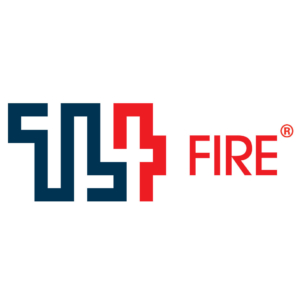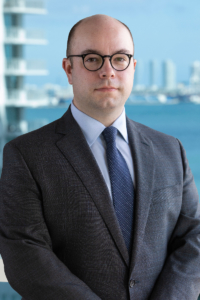What practice areas do you focus on?
Asset recovery, corruption and proceeds of crime recovery, financial fraud, and international commercial litigation and appeals. My practice involves representing clients ranging from sovereign governments and multinational corporations to court-appointed fiduciaries and private clients.
What is your role when it comes to asset recovery?
The role of an asset recovery lawyer is to be a member of a multi-faceted team focused on a core objective: recovering value for the client. Often, asset recovery counsel assembles teams of investigators and forensic experts to more fully understand the circumstances that gave rise to the dispute, and asset recovery counsel serves as a hub for all of the professionals working to advance the client’s objectives.
How common is art fraud?
Art fraud takes many forms – it can be based on a forged or otherwise inauthentic artwork, or as we see more commonly, it can be financial fraud perpetrated through abuse of the otherwise very private art market. As the global art market grows, and new consumers are brought into the market, the risk of art fraud increases.
What have been your most interesting cases regarding asset recovery?
Without disclosing privileged details, I have had an opportunity to work with our team at Sequor on a variety of interesting matters. The assets have ranged from NFTs and blue-chip artworks to monies held by state sponsors of terrorism and kleptocrats. Our work is truly global. Since joining Sequor, I have worked on matters touching North America, South America, the Caribbean, the UK, Europe, the Middle East, and Asia.
What motivates those who commit art fraud?
Motivation for fraud, and crime in general, is usually a case-specific matter. However, two key factors impacting fraud in the art market are: (a) the relatively high level of privacy afforded in fine art and luxury goods sales (private dealers and auction houses typically dislike disclosure of client and sale information); and (b) the relative ease of transporting art and other luxury goods across borders without declaration to customs officials. Because transactions are often conducted in private and the goods are easily transported, art fraud is a growing market for fraudsters around the world.
What are the personal consequences of art fraud in communities?
Art fraud has a direct impact on all consumers of art. When specific artworks are involved in litigation (because of fraud or otherwise), they are often stored pending resolution of the proceedings. This means that the art-consuming public will likely not have the opportunity to view the artwork until the dispute resolves. Additionally, fraud in any market increases transaction costs – leading to increased consumer costs either at galleries, art fairs or even when visiting museums.
Why is asset recovery important?
Asset recovery is a critical aspect of the law. The field of asset recovery covers a broad range of legal efforts, but it focuses on returning value to the client, who otherwise may not recover. A money judgment has limited value, but the post-judgment recovery is where a victim of fraud actually becomes close to whole again.
Have there been spikes in art fraud? If so, why?
As with any other type of financial fraud, there are market conditions that lend themselves to increases in fraudulent activity. The most clear example of this is whenever there is a spike in fine art sales, which may lead to increased art fraud within the market. Otherwise, spikes may also arise when dealing with inauthentic works, whereby a forger releases a tranche of works at once, often purporting that they came from a single previously-unknown collector.
What skills do you draw upon when it comes to art fraud cases?
Art fraud follows the same form as many other frauds that Sequor sees on a daily basis. The team at Sequor, however, is specially suited to handle art fraud cases because of our extensive history of successfully recovering artworks in fraud cases, as well as our relationships with the international art industry.
What behind-the-scene work goes into an art fraud case?
Art fraud, as is the case with most fraud matters, is a deeply personal wrong against a person or entity. Behind the scenes, Sequor acts as counselor and advisor to clients who are, in many instances, experiencing fraud firsthand for the first time. Sequor’s ability to match world-class legal practice with a hands-on and compassionate client relationship sets us apart in the market.
Do you have any advice for those interested in pursuing this as a legal specialty?
International asset recovery and fraud litigation is an extremely interesting and dynamic field. Anyone interested in going into this area of the law should make best efforts to both master their understanding of the US legal system while also gathering an understanding of international legal systems and politics. It is truly a rare occasion where one of our cases does not involve facts and claims in multiple countries on multiple continents.
Given your tenure as an Attorney at Sequor Law, what is the most important thing you have learned?
Persistence and professionalism. Persistence is key because a common defense strategy is to lay in wait for the prosecuting attorney to make the first move. Without persistence, our clients may not recover the value they lost, or they may unnecessarily wait for a recovery, thereby allowing their opponent time to hide or shield assets subject to recovery. Professionalism is also a key aspect of our practice. Dealing with professionals and clients around the world requires a highly professional and adaptive demeanor. Additionally, professionalism is an aspect of the legal practice that is often the first thing lost in stressful and tense situations. The adage that one catches more flies with honey than with vinegar is a good rule to practice by.
What inspired you to study law ?
I studied law for two reasons. First, I appreciate the logic that the law provides. Decisions in the common law system are largely based on prior precedent that builds upon past cases and creates a body of law from which lawyers can pull based on the individual facts of each case. Additionally, the feeling of helping victims is second to none. Sequor prides itself on only representing those who have lost out at the hands of others’ wrongdoing. It is a great feeling to go to sleep at night knowing that I am trying to do good every day.
What is most significant about being a lawyer in this day and age?
The most significant aspect of being a lawyer today is the fast-evolving nature of our practice. During the COVID-19 pandemic, courts and law firms were required to quickly adjust to a remote world or else they faced dire outcomes for pending and new cases. While the law is typically a slow-to-evolve profession, the past few years have finally launched the practice into the new millennium. These advances in technology also assist practice in general – Zoom has made it easier to communicate with clients and colleagues around the world, and advances in artificial intelligence have made analyzing huge sets of data more efficient both in terms of time and cost. I look forward to seeing how technology further impacts the practice in the coming years as everyone re-adjusts to a (hopefully) post-COVID world.
What advice would you give to young attorneys?
There are three pieces of advice that I would give younger attorneys today. First, make sure that you are a master of procedure if you are a litigator. The party who better knows the rules of procedure is at an extreme advantage over his adversary. Second, strive to get as much hands-on experience as possible. Seek out opportunities to shadow more senior lawyers, volunteer to take depositions and argue at motion calendar, and if possible, work on a trial as early as possible. Finally, explore the various areas of practice. It is uncommon now for a lawyer to remain in one area of practice for their entire career – if you do not feel rewarded in one practice, explore others until you find something that excites you every day.
What do you like most about Sequor Law?
Sequor is unlike any law firm I’ve ever worked with. Our team is like a family and our boutique size allows us to cross-collaborate on many matters, leading to more creative and well-rounded solutions for our clients. Sequor also focuses on attorney development to a degree that I am unaware of at any other firm. Young attorneys are encouraged to follow their passions within the firm’s general practice areas, and they are encouraged to write, speak, and network in ways that meaningfully grow a young attorney’s practice at an accelerated yet manageable rate.
 Sequor Law Shareholder Leyza B. Florin was a panelist at ThoughtLeaders4 FIRE International where she participated on the Attack the Sham panel about asset recovery toolkits along with co-panelists Hannes Arnold, Senior Partner – GASSER PARTNER Attorneys at Law, William Redgrave, Partner – Baker & Partners, Simon Jerrum, Partner – HFW.
Sequor Law Shareholder Leyza B. Florin was a panelist at ThoughtLeaders4 FIRE International where she participated on the Attack the Sham panel about asset recovery toolkits along with co-panelists Hannes Arnold, Senior Partner – GASSER PARTNER Attorneys at Law, William Redgrave, Partner – Baker & Partners, Simon Jerrum, Partner – HFW.




Sequor Law es una firma internacional de abogados que representa instituciones financieras, gobiernos soberanos, empresas estatales, empresas públicas y privadas, profesionales de insolvencia y clientes individuales en las áreas de recuperación de activos, fraude financiero, insolvencia y litigios de servicios financieros.